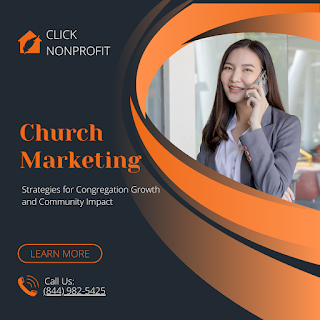Unlocking the Spirit: The Keys to Reaching People with Church SEO
In an era where digital connectivity shapes how individuals seek information and connect with communities, the importance of Church SEO (Search Engine Optimization) cannot be overstated. It's not merely about ranking high on search engines; it's about ensuring that seekers can easily find and engage with your church online. Check out the keys to effectively reaching people through Church SEO, unlocking the potential for connection, community, and spiritual growth.
**1. Understanding Your Audience:
The foundation of effective Church SEO lies in understanding your audience – their needs, interests, and search behaviors. Take the time to identify the demographics and preferences of your target audience, including both current congregants and potential newcomers. By understanding what they're searching for online, you can tailor your SEO strategy to meet their needs and capture their interest.
**2. Optimizing Your Website:
Your church's website is its digital front door, and optimizing it for search engines is essential for reaching people online. Ensure that your website is mobile-friendly, fast-loading, and easy to navigate. Optimize your website's meta tags, headers, and content with relevant keywords related to your church, location, and services. A well-optimized website not only improves search engine rankings but also enhances the user experience for visitors.
**3. Creating Quality Content:
Quality content is the cornerstone of effective Church SEO. Develop content that is informative, engaging, and relevant to your audience's interests and questions. This could include blog posts, sermons, event announcements, and resources for spiritual growth. By consistently producing valuable content, you not only attract visitors to your website but also establish your church as a trusted authority in your community.
**4. Utilizing Local SEO Strategies:
For churches, local SEO is particularly important, as it helps to connect with individuals in your community who are searching for spiritual resources and services nearby. Claim and optimize your Google My Business listing with accurate information about your church, including your address, phone number, and hours of operation. Encourage congregants to leave positive reviews, which can boost your local search visibility.
**5. Engaging with Online Communities:
Engaging with online communities is a powerful way to expand your church's digital footprint and connect with individuals who may be searching for spiritual guidance. Participate in relevant online forums, social media groups, and community platforms where discussions about faith and spirituality are happening. Share valuable insights, resources, and invitations to church events to engage with seekers and invite them to join your community.
**6. Optimizing for Voice Search:
With the rise of voice-activated devices and virtual assistants, optimizing your Church SEO for voice search is becoming increasingly important. Voice search queries tend to be more conversational and longer, so focus on optimizing your content for natural language and long-tail keywords. Consider creating FAQ pages or blog posts that address common questions people may ask about your church or faith.
**7. Building Backlinks and Citations:
Backlinks from reputable websites and citations in online directories can significantly improve your church's SEO performance. Reach out to local businesses, community organizations, and other churches to establish partnerships and opportunities for collaboration. Guest blogging on relevant websites and participating in local events can also help to generate backlinks and citations, boosting your church's online authority and visibility.
**8. Monitoring and Analyzing Performance:
Regularly monitoring and analyzing your Church SEO performance is essential for optimizing your strategy and maximizing your reach. Use tools like Google Analytics and Google Search Console to track key metrics such as website traffic, keyword rankings, and user engagement. Pay attention to trends and insights to identify areas for improvement and refine your SEO tactics accordingly.
**9. Staying Up-to-Date with SEO Trends:
SEO is a constantly evolving field, and staying up-to-date with the latest trends and algorithm changes is crucial for maintaining your church's online visibility. Follow reputable SEO blogs, attend webinars, and participate in industry forums to stay informed about best practices and emerging trends in Church SEO. By adapting your strategy to reflect current SEO trends, you can ensure that your church remains visible and accessible to seekers online.
**10. Fostering Meaningful Connections:
Ultimately, Church SEO is about more than just rankings and traffic; it's about fostering meaningful connections with individuals who are seeking spiritual guidance and community. Use your SEO strategy as a tool to reach people where they are, provide valuable resources and support, and invite them to experience the transformative power of faith within your church community.
Conclusion:
Effective Church SEO is not a one-size-fits-all approach; it requires a deep understanding of your audience, a commitment to quality content, and a willingness to adapt to changing trends. By implementing these key strategies and principles, your church can reach people where they are, connect with seekers online, and create opportunities for spiritual growth, community engagement, and meaningful connections that extend beyond the digital realm.




Comments
Post a Comment